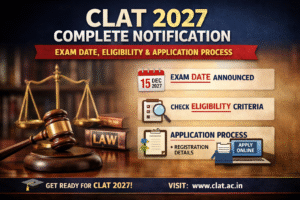1.Introduction
The United States successfully conducted a test launch of its Minuteman III Intercontinental Ballistic Missile (ICBM) from Vandenberg Space Force Base, California, on November 5, 2025.
The unarmed missile flew approximately 7,500 km and hit its target near the Ronald Reagan Ballistic Missile Defense Test Site in the Marshall Islands.
The test came days after former President Donald Trump’s call for resuming nuclear testing, making it a strategically significant event.
2. Purpose of the Test
The US Air Force clarified that the test (code-named GT 254) was a routine reliability and accuracy assessment, planned months in advance.
Lt. Col. Karrie Wray, commander of the 576th Flight Test Squadron, stated that the test aimed to “verify and validate the ICBM system’s ability to perform its critical mission.”
These regular launches help:
Evaluate the readiness and reliability of the nuclear deterrent.
Collect data for maintenance and modernisation of the missile system.
Demonstrate operational capability to allies and adversaries alike.
3. The Minuteman III Missile: Overview
Type: Intercontinental Ballistic Missile (ICBM)
Operational Since: 1970s
Manufacturer: Boeing
Range: Up to 13,000 kilometres
Payload: Multiple Independently Targetable Reentry Vehicles (MIRVs), capable of carrying 3 nuclear warheads (though limited to 1 under arms treaties).
Propulsion: Three-stage solid-fuel rocket.
Significance: Forms the land-based leg of the US nuclear triad, alongside:
Submarine-Launched Ballistic Missiles (SLBMs)
Strategic bombers
4. Strategic Context and Timing
The test followed President Donald Trump’s public statement calling for renewed nuclear readiness and possible resumption of nuclear testing.
The timing sparked international attention, raising debates on whether it was a signal of strategic assertiveness amid global tensions with Russia and China.
While the US maintained that it was a pre-scheduled test, analysts viewed it as part of a larger narrative of deterrence and modernisation.
5. Trump’s Statements: Dual Approach
President Trump emphasised a balance between strength and peace, stating:
“We could blow up the world 150 times. There’s no need for this. I want peace all over the world.”
He asserted that the tests were not acts of aggression, but steps to maintain credible deterrence.
Trump also reiterated interest in arms control and denuclearisation dialogues with Russia and China, highlighting America’s “unmatched nuclear capability”.
6. Non-Nuclear Nature of the Test
Energy Secretary Chris Wright clarified that the Minuteman III tests are non-nuclear, meaning:
No fissile material (plutonium or uranium) is used.
Tests assess delivery systems, guidance accuracy, and component reliability.
These evaluations form part of the “Stockpile Stewardship Program”, which ensures nuclear weapon reliability without actual detonations.
7. Future Modernisation Plans
The US aims to replace the Minuteman III with the LGM-35A Sentinel ICBM by around 2030, as part of its nuclear modernisation programme.
The upgrade involves:
Advanced propulsion systems
Improved targeting and guidance
Enhanced cybersecurity to resist modern threats
The broader modernisation also covers:
New Columbia-class submarines (replacing Ohio-class)
B-21 Raider stealth bombers
Upgraded nuclear command and control systems
8. Strategic Implications
For the US:
Reinforces nuclear deterrence and technological dominance.
Ensures continued credibility of the triad despite ageing systems.
For Global Security:
May raise concerns among other nuclear powers (Russia, China, North Korea).
Could fuel a new arms race, especially amid tensions in Ukraine, South China Sea, and Taiwan Strait.
For Arms Control:
Poses challenges to existing treaties such as New START, which is due for renewal.
Undermines efforts toward global nuclear disarmament.
9. Exam-Oriented Facts
| Aspect | Details |
|---|---|
| Event | Test launch of Minuteman III ICBM |
| Date | November 5, 2025 |
| Location | Vandenberg Space Force Base, California |
| Target Site | Marshall Islands (Ronald Reagan Missile Test Site) |
| Test Code | GT 254 |
| Missile Range | ~13,000 km |
| Flight Distance (Test) | ~7,500 km |
| Type | Unarmed (non-nuclear) test |
| Organising Unit | 576th Flight Test Squadron |
| Purpose | Routine reliability and accuracy test |
| Successor Missile | LGM-35A Sentinel (expected by 2030) |
10. Broader Analysis (UPSC Perspective)
A. For GS Paper 2 – International Relations
Reflects the realpolitik nature of nuclear diplomacy.
Raises questions about the future of arms control agreements.
Demonstrates strategic signalling amid shifting global power equations.
B. For GS Paper 3 – Science & Tech / Internal Security
Illustrates advances in missile technology and deterrence systems.
Showcases solid-fuel propulsion and MIRV technology.
Highlights the balance between defence modernisation and disarmament goals.
11. Conclusion
The Minuteman III test highlights the delicate balance between maintaining strategic deterrence and pursuing global disarmament.
While officially a routine test, its timing and symbolism underscore the renewed nuclear assertiveness among major powers.
For the global community, it raises vital questions about the future of nuclear arms control, the risk of escalation, and the challenge of sustaining peace in a multipolar world.
12. Possible UPSC Questions
(a) Mains (GS Paper 3):
“Routine strategic weapons testing often carries deeper geopolitical implications.”
Discuss in the context of the 2025 Minuteman III ICBM test by the United States.
(b) Prelims / Objective:
Which of the following statements regarding the Minuteman III ICBM is correct?
It is a submarine-launched ballistic missile.
It has a range of about 13,000 km.
It forms part of the US nuclear triad.
✅ Answer: (2) and (3) only.






